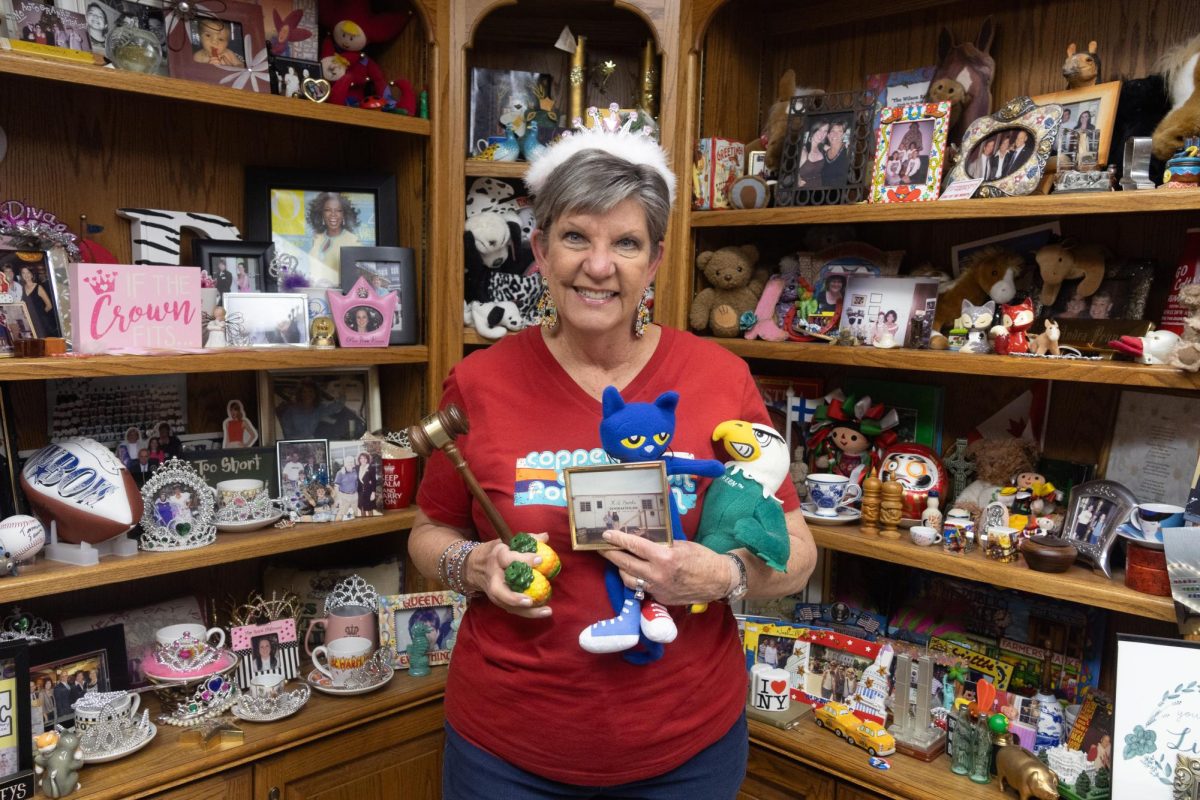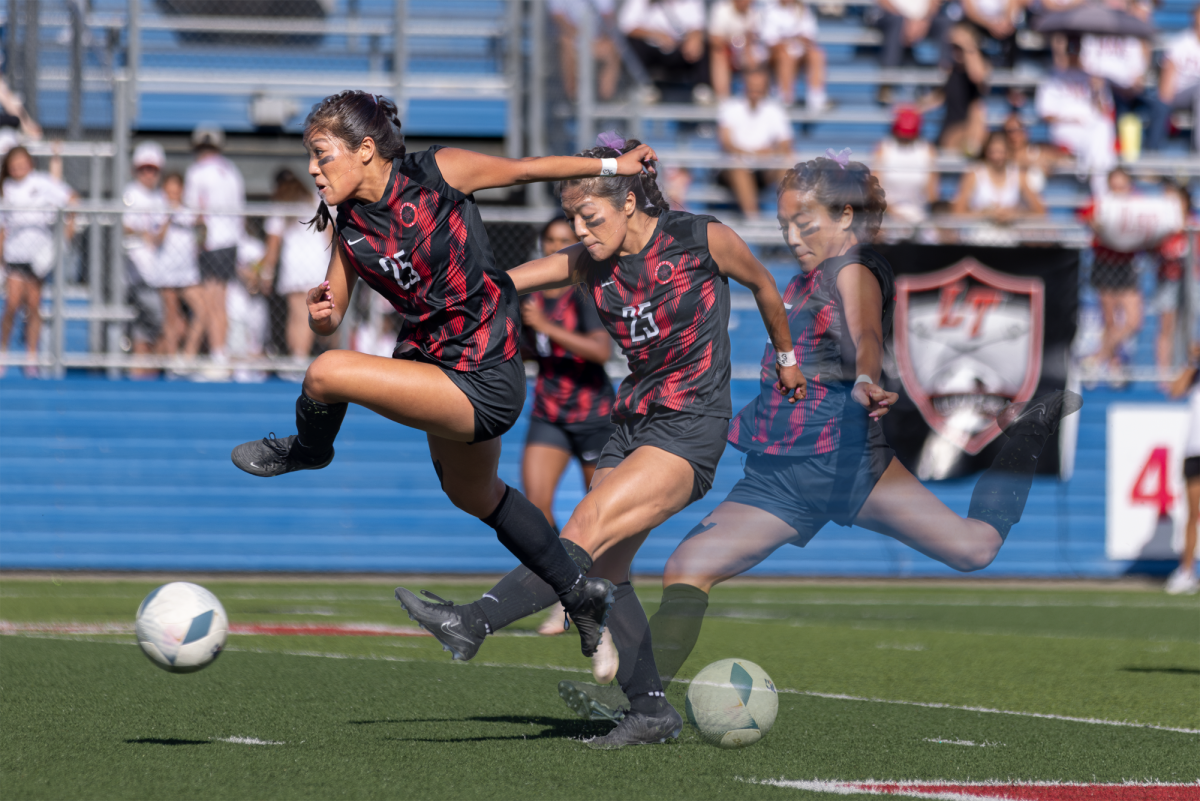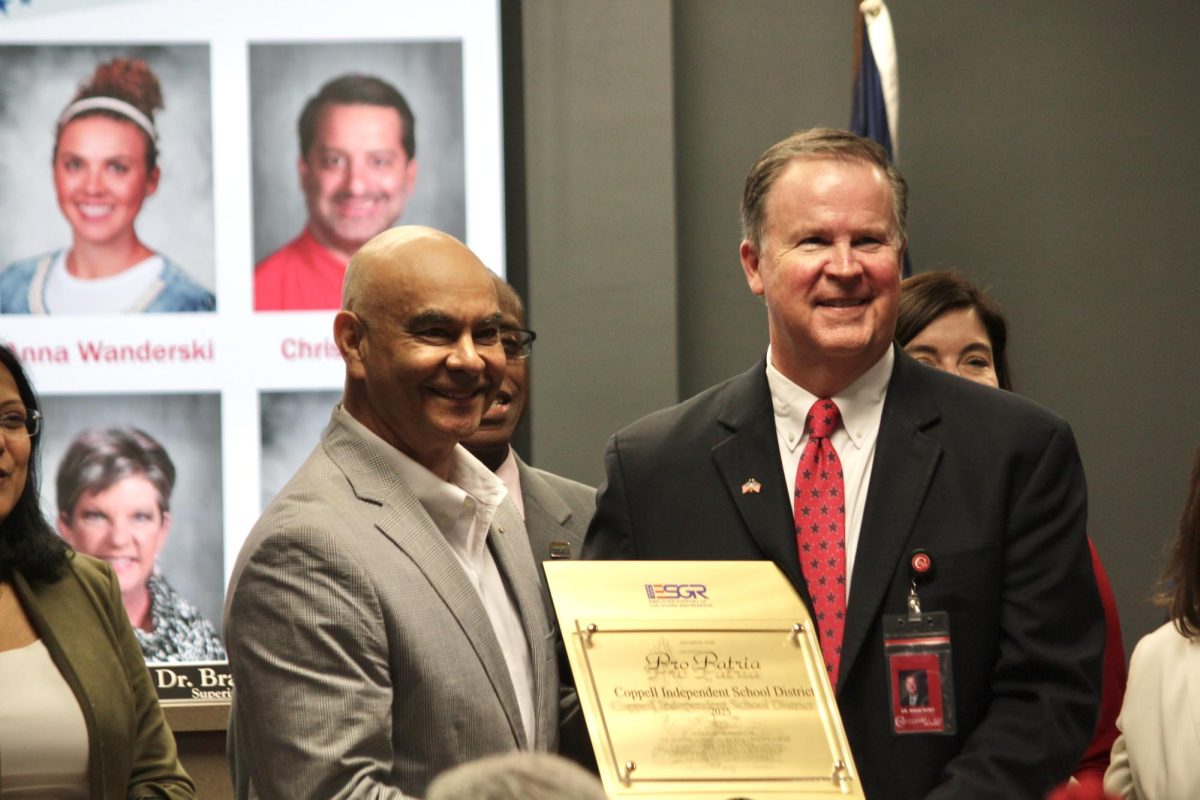I sit down at the lunch table and open my lunchbox. Instead of the usual sandwiches or pizza, I pull out a container of homemade curry—freshly cooked within my mom’s kitchen.
The aroma reminds me of home, but as the smell of the homemade curry fills the Coppell High School cafeteria, I see people around me making faces and whispering things like “What’s that smell?”
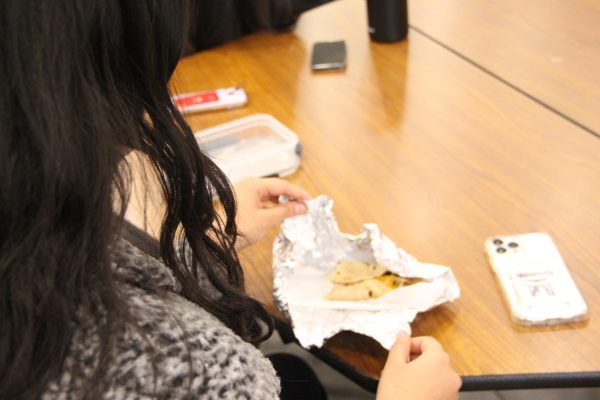
(Nyah Rama)
Many Asian students, including myself, have gone through the same thing. The food that feels like comfort and love at home suddenly starts to feel like a curse.
I still remember the time in fifth grade when I got my lunch box out, excited to eat my favorite lunch, and heard someone say “Ew, her food looks like throw up.” I turned towards the direction of the comment, seeing my classmate disgustingly looking at my food.
Curry is not just food. It plays a crucial role in Indian culture, history and family traditions. The spices in curry tell a story about where you come from. It is a string connecting you to your roots even after moving to the opposite side of the world.
But, when someone at school says, “ew, that smells so bad,” it can feel like they are not just judging the food; they are rejecting a part of you.
That is unfair.
Why should anyone ever feel ashamed about the food they grew up eating just because someone else outside their culture does not understand it?
This issue is not limited to Indians. Across the board, children from immigrant families face similar reactions to their ethnicity’s cuisine – whether it’s kimchi, hummus or curry. These reactions bring up a need for deeper education that celebrates cultural diversity rather than sidelines it.
What is generally overlooked is the missed opportunity for curiosity and connection. Food is a universal language and it tells stories of immigration, tradition and innovation. Having a conversation about someone’s homemade food can lead to applauding cultural diversity and widespread regional cuisine, but it generally turns into the mocking of culture.
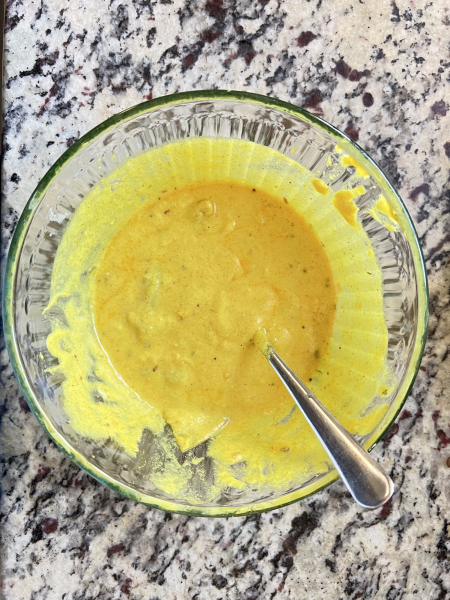
(Prisha Hooda)
When you are in high school, it is easy to focus on fitting in. But the world is so much bigger than your cafeteria. After high school, you are going to meet so many people all from different backgrounds, with all kinds of traditions. Learning to respect and celebrate those differences now will make you a better person later on.
To anyone that has ever felt ashamed about their lunch, know that your food is not just food. It is a part of who you are, and that is something to be proud of.
The next time you get a whiff of curry, kimchi or any other unfamiliar smell, do not make a face and wrinkle your nose. Open your mind and possibly your taste buds. You may find something incredible.
Also, to the fifth grader that made me feel so embarrassed, I am still obsessed with palak paneer, and I would not trade that, or my culture, for anything in the world.
Follow Prisha (@hoodaprisha1209) and @CHSCampusNews on X.






